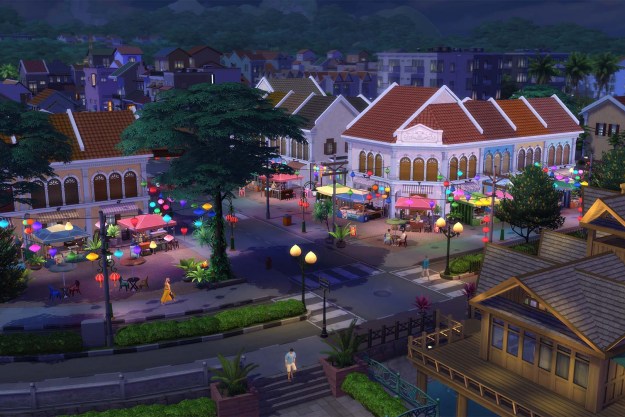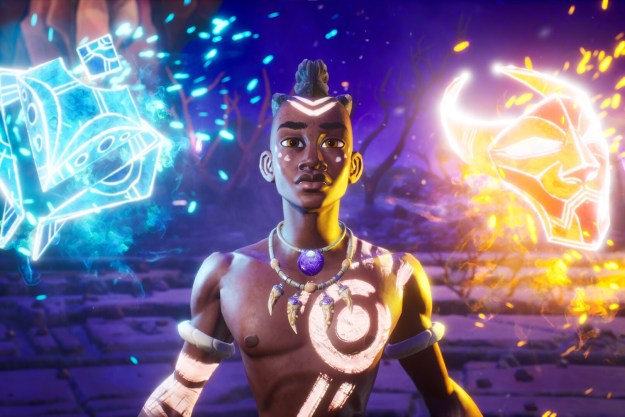Rumors of a Nintendo Switch 2 (or Switch Pro) have been circulating for years. Whispers of the next-gen Nintendo console first started when The Legend of Zelda: Tears of the Kingdom was first teased in 2019, gained steam when the Switch OLED launched in 2021, and are increasing now that the standard Switch has been out for six years.
There’s no doubt that the Nintendo Switch is a fantastic console — it has a unique and impressive game library (with more upcoming games slated for this year), the number of features included with Nintendo Switch Online is constantly improving, and it’s still our favorite portable console — but it isn’t without its flaws. There’s enough room for improvement that would warrant an entirely new console in the near future. Nintendo recently announced that we won’t see a Switch upgrade in the next fiscal year, meaning the absolute earliest we get a look at a new Nintendo console would be in late 2024.
Looking at the Switch’s life span and the current gaming landscape, here’s what we think the Nintendo Switch 2 needs to bring to the table to be a worthwhile upgrade and compete with other platforms.
Switch 2 release date speculation
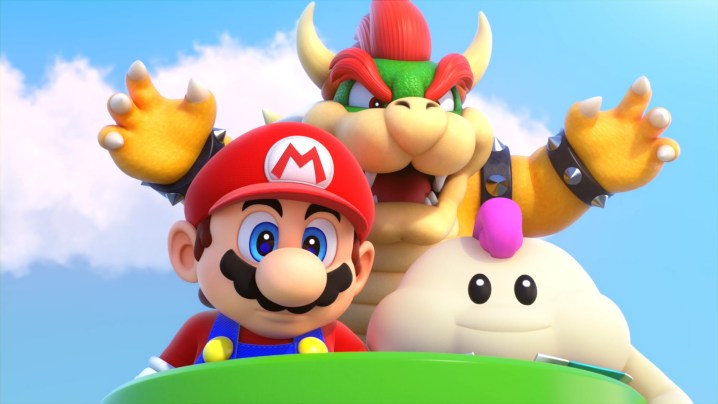
While the initial rumors pointed to a late 2024 release for Nintendo’s next console, new rumors have sprung up suggesting it has been pushed to the early part of 2025. The strongest source on this comes from Nikkei (translated via VGC), which states that the Switch 2 has been internally delayed to avoid hardware supply issues and strengthen the number of games it will have at launch.
Switch 2 rumors and news

Aside from the release date, a few other credible rumors about this new system are floating around. Take everything here with a grain of salt, of course, because Nintendo has yet to acknowledge that a new console is in the works. These may also contradict the features we want, but since they are still just rumors, our wishlist can still be answered.
In terms of tech, the biggest disappointment is regarding a Bloomberg report stating the Switch 2 will launch with an 8-inch LCD screen rather than OLED. In terms of power, the Verge reported during the Microsoft-Activision acquisition that Activision executives were informed about the potential power of a Switch 2 and compared it to being similar to the PS4 or Xbox One. While Digital Foundry does say we know that Nvidia’s T238 chipset will power it, it isn’t clear if it will be able to use DLSS 2 to potentially upscale graphics to 4K.
While we all expect it, thankfully, backward compatibility does seem to be in the plans. During one of Nintendo’s own financial calls, it stated that “Nintendo Switch will be entering its eighth year in March 2024. We will continue to release new titles and content for Nintendo Switch without being bound by the traditional concept of the platform lifecycle.” This is backed up further via Universonintendo rumors claiming it will have backward compatibility for physical and digital titles but also allow developers to upgrade their Switch games to take advantage of the new hardware.
Features we want in a Switch 2
4K resolution and faster processing
While the Switch surely wasn’t built to compete with the Xbox Series X or PS5 in terms of raw horsepower, it can feel woefully underpowered running even Switch exclusives, let alone multi-platform titles. Trailers for upcoming Nintendo titles are often met with “that looks great … for the Switch,” and new launches don’t always run as smoothly as fans hoped. Pokémon Scarlet and Violet were unusually buggy at launch, Sonic Frontiers couldn’t hit high frame rates on Switch, and games like Hogwarts Legacy and The Lord of the Rings: Gollum are coming to the Switch well after initial launch dates as those ports require extra work to fit them on the system. While the upcoming Legend of Zelda installment looks great, we can’t help but dream about how well it’d run on another console or PC.
Nintendo has certainly carved out its own piece of the gaming market for players who don’t need improved graphics or processing power (do we really need high-res Kirby or Pikachu?), but the Switch’s limitations certainly hold it back, and that issue is only going to get worse moving forward.
The current Switch can hit 720p to 1080p resolution and has a 60fps frame rate limit. We’d love to experience full 4K gaming on the Switch 2 and bump up that frame rate potential (so it can, at the very least, consistently hit 60fps). We aren’t going to get into the ins and outs of processing power and preferred chipsets here, but we definitely need more power from Nintendo going forward.
Make the OLED screen the new standard
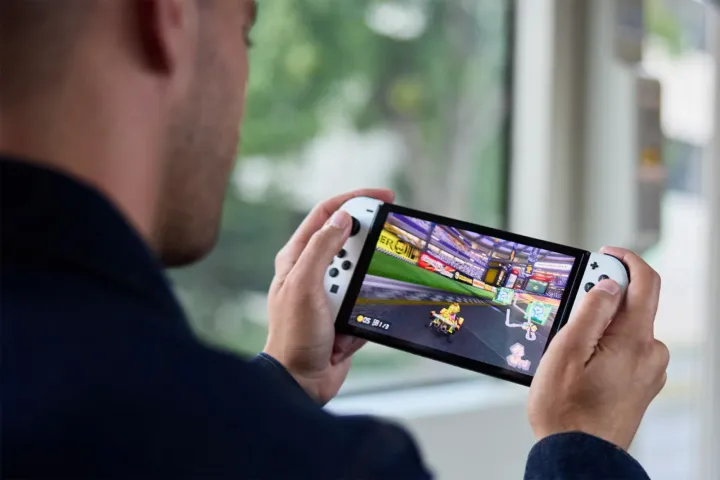
The Nintendo Switch has always been full of bright, colorful gaming experiences compared to other consoles that focus on mature titles that tend to trend darker (visually and content-wise), and its successor will need a screen to reflect that content. When the Switch OLED model launched in 2021, the standard Switch’s LCD screen immediately looked washed out by comparison. OLED screens are steps ahead of their counterparts, boasting improved black levels, brightness levels, and color accuracy while using less power overall.
We’d be really disappointed if Nintendo walked back on such a great update and didn’t standardize the OLED screen on its next console, at the very least.
More built-in storage

Any longtime Switch owners have run into storage issues and have been forced to archive game data to make room for new games regularly. The standard Switch and Switch Lite come with 32 GB of internal storage, while the Switch OLED model bumps up storage to 64 GB. With new games becoming more demanding and needing more space with each passing year, the idea of fitting more than a handful of premium titles within 64 GB is laughable. And even some of that limited storage is reserved for use by the system!
Switch users can easily expand the storage on any of these consoles by purchasing a large microSDHC or microSDXC card up to 2TB, but those are sold separately and can cost as much as a new game if you go with a large one. This a weird cost to pass off to players when it’s going to be 100% necessary to maintain a decent digital library of games.
Nintendo should make the switch over to an internal solid-state drive when the Switch 2 comes out. An SSD would allow for greater internal storage and drastically improved load times compared to the Switch’s standard flash memory or external SD card data transfer times. Current games would perform better and faster, while developers would have a lot more to work with when developing new games. It’s a win for everyone.
Improved Joy-Cons
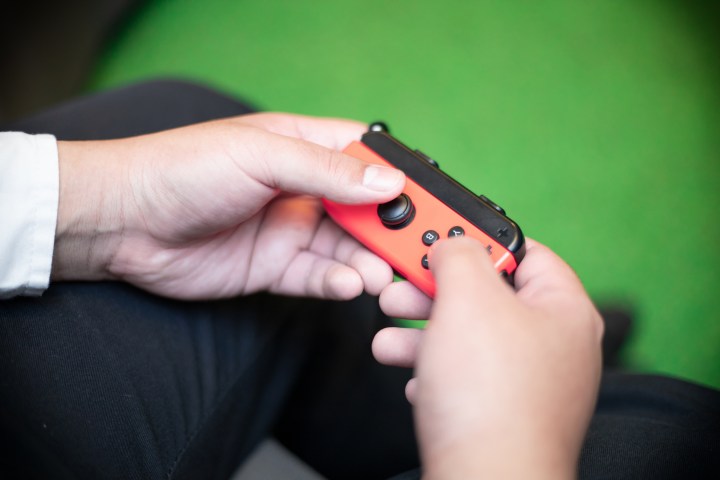
Everyone loves the ability to move the Switch back and forth between docked and handheld modes. What’s better than doling out Joy-Cons to all your friends for a game of Mario Party Superstars or Mario Kart 8? The simplicity of the Switch’s controller design works — we’re not asking for anything complex — but their quality just isn’t up to industry standard. Joy-Cons feel cheap for how much they cost, aren’t the most ergonomic shape for comfortable long gaming sessions, and will inevitably suffer from drift issues. This is when a Joy-Con thumbstick will move without a player touching it, causing obvious gameplay problems.
Joy-Con drift is the big issue here because it has existed since the console’s launch and Nintendo really hasn’t done anything about it with newer models. The company has been repairing out-of-warranty Joy-Cons since 2019, but the process isn’t exactly smooth, and Switch owners shouldn’t have to send their very basic controllers off for problems with the design.
Color customization options
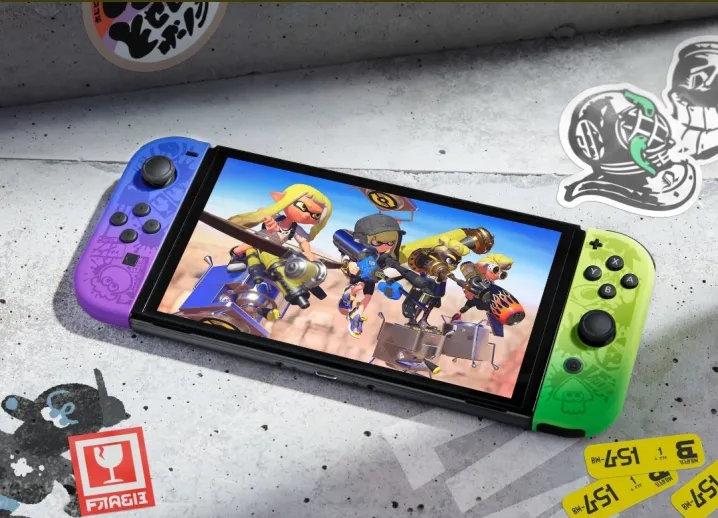
Nintendo has released some spectacular special edition Switch models for games like Splatoon 3, Animal Crossing: New Horizons, and The Legend of Zelda: Tears of the Kingdom, but there aren’t a whole lot of customization options outside of buying an entirely new console or a separate set of Joy-Cons that you might not need. There are several color schemes available for the Switch Lite and a few different color first-party Joy-Con colors, but outside of that, there are a lot of third-party accessories that might not meet Nintendo standards.
Obviously, there needs to be a color scheme for the base model, but wouldn’t it be cool if you could order a Switch 2 online and pick your own styles for the console, dock, and Joy-Cons? That level of personalization could make a Switch successor feel a bit more special, giving players a good reason to upgrade. It’d be great to see that energy extended to its UI as well, bringing back the Nintendo 3DS’ themes and adding new ways to customize the current Switch’s barebones menu screen.
And please, Nintendo, bring back translucent controllers.
Editors' Recommendations
- Avowed: release date window, trailers, gameplay, and more
- Steam Deck 2: release date speculation, specs, pricing
- Haunted Chocolatier: release date speculation, news, trailer, and more
- Best Nintendo Switch deals: consoles, games, and accessories
- Marvel Rivals: release date speculation, trailers, gameplay, and more




